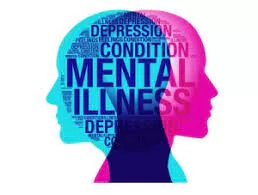A recent study published in Nature Human Behaviour reveals that marriage could serve as a protective factor against depression, significantly reducing the likelihood of depressive symptoms in married individuals compared to their unmarried counterparts. According to the research, unmarried people are about 80% more likely to experience depressive symptoms than those who are married, based on an analysis of over 100,000 individuals across seven countries. The study shines a light on the complex relationships between marital status, gender, education, and cultural context in the risk of depression.
Key Findings of the Study
The research, led by Kefeng Li and colleagues, draws from data across the United States, United Kingdom, Mexico, Ireland, South Korea, China, and Indonesia, with a follow-up period ranging from 4 to 18 years for over 20,000 participants. The study highlights that unmarried individuals face a 79% higher risk of experiencing depressive symptoms compared to married individuals. Those who are divorced or separated carry an even greater risk, with a 99% increase in depressive symptoms, while widowed individuals have a 64% higher risk than married participants.
Unmarried individuals in Western countries (such as the US, UK, and Ireland) were observed to have a higher likelihood of depression than their counterparts in Eastern countries (South Korea, China, and Indonesia). Moreover, within the unmarried demographic, men and individuals with higher educational attainment exhibited a particularly elevated risk for depression.
Implications for Mental Health and Demographic Insights
The study provides vital insights for mental health experts by identifying specific demographic groups that may be more susceptible to depression. The elevated risk among educated, unmarried men may reflect societal pressures or unmet expectations within specific cultural contexts. Additionally, the regional differences in depressive symptoms across Western and Eastern countries underscore the importance of considering cultural influences when assessing mental health outcomes related to marital status.
Why Marriage May Reduce Depression Risk
The researchers speculate that the mental health benefits of marriage could stem from several supportive factors within marital relationships. These include the exchange of social support between partners, access to shared economic resources, and the positive psychological influence spouses have on each other’s well-being. This social and emotional support may help buffer against stress and depressive tendencies, potentially explaining the lower prevalence of depression in married individuals.
Study Limitations and Future Directions
Despite its comprehensive approach, the study has notable limitations. Data were collected through self-reported questionnaires rather than clinical diagnoses, potentially affecting the accuracy of depression measurements. Additionally, the research only examined heterosexual couples, leaving room for future studies to explore whether similar protective effects are observed in same-sex partnerships.
As depression continues to be a leading global health challenge, affecting around 5% of adults worldwide, studies like this provide valuable perspectives for public health interventions. By identifying high-risk demographic groups, mental health policies and resources can be better tailored to address the specific needs of unmarried individuals, particularly men and those with higher educational attainment.
Conclusion
This landmark study enriches our understanding of how marital status influences mental health across diverse societies. While marriage appears to offer substantial mental health benefits, particularly in combating depressive symptoms, the findings also highlight the need for targeted support for those who are single, divorced, or widowed. By integrating these insights into public health frameworks, we can enhance mental health outcomes for diverse populations worldwide.
Reference: Kefeng Li et al, “Association and causal mediation between marital status and depression in seven countries,” Nature Human Behaviour (2024). DOI: 10.1038/s41562-024-02033-0.












